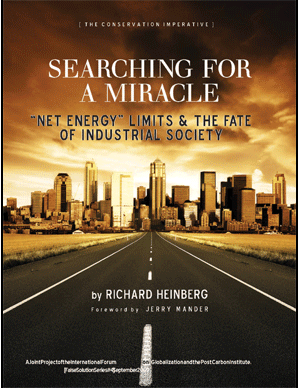 This report is a non-technical examination of a basic question: Can any combination of known energy sources successfully supply societyís energy needs at least up to the year 2100? In the end, we are left with the disturbing conclusion that all known energy sources are subject to strict limits of one kind or another. Conventional energy sources such as oil, gas, coal, and nuclear are either at or nearing the limits of their ability to grow in annual supply, and will dwindle as the decades proceedóbut in any case they are unacceptably hazardous to the environment. And contrary to the hopes of many, there is no clear practical scenario by which we can replace the energy from todayís conventional sources with sufficient energy from alternative sources to sustain industrial society at its present scale of operations. To achieve such a transition would require (1) a vast financial investment beyond societyís practical abilities, (2) a very long timeótoo long in practical termsófor build-out, and (3) significant sacrifices in terms of energy quality and reliability.
This report is a non-technical examination of a basic question: Can any combination of known energy sources successfully supply societyís energy needs at least up to the year 2100? In the end, we are left with the disturbing conclusion that all known energy sources are subject to strict limits of one kind or another. Conventional energy sources such as oil, gas, coal, and nuclear are either at or nearing the limits of their ability to grow in annual supply, and will dwindle as the decades proceedóbut in any case they are unacceptably hazardous to the environment. And contrary to the hopes of many, there is no clear practical scenario by which we can replace the energy from todayís conventional sources with sufficient energy from alternative sources to sustain industrial society at its present scale of operations. To achieve such a transition would require (1) a vast financial investment beyond societyís practical abilities, (2) a very long timeótoo long in practical termsófor build-out, and (3) significant sacrifices in terms of energy quality and reliability.
Published November 2009.



